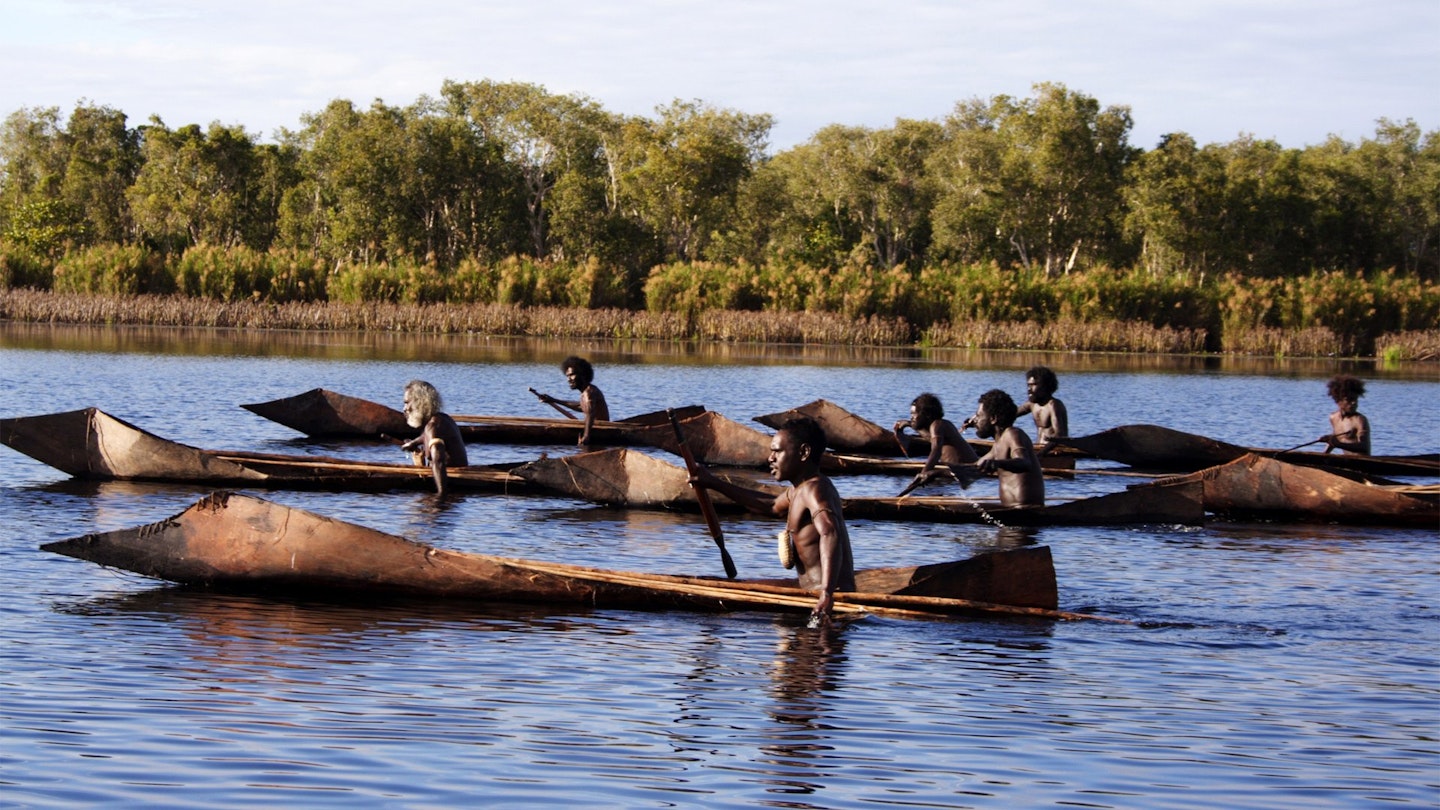It’s both a surprise and a shame that Aboriginal culture in Australia has only been sporadically represented onscreen — and only ever in the context of whites. Ten Canoes will change all that.
As you might expect from a people who’ve been communicating their history orally for tens of thousands of years, Australian Aborigines are pretty good at telling stories. ‘Pretty good’ in the way that Shane Warne is ‘pretty good’ at tossing a cricket ball down a nicely cracked pitch.
As such, in this collaboration between Rolf de Heer (one of Australia’s boldest talents) and the Yolngu people (Peter Djigirr became so involved as to warrant a co-director credit), we get a tale of action, romance, magic, revenge, and life lessons; all within its own cultural parameters, of course — don’t expect another Apocalypto. This is better, and as we watch young Dayindi (Jamie Gulpilil) learn skills for his future and lessons from the past, it’s Ten Canoes’ differences that serve to make it vital and fascinating.
The trick here is giving a simple story such a highly entertaining structure. Legendary Antipodean actor (and Jamie’s dad) David Gulpilil narrates us back to the time of love-struck Dayindi who, while partaking in his first hunt for the seasonal delicacy of goose eggs in a crocodile-infested swamp (hence the need for canoes), is told the story of Yeeralparil. Thousands of years earlier, Yeeralparil fancied the wife of his brother and tribal elder Ridjimiraril... So begins a series of flashes back and forth, with some actors doubling up roles to help signify the parallels, and in a brilliant, simple touch, both stories unfold against the same backdrop — a powerful symbol of the Aborigines’ relationship with the land.
With such gorgeous scenery, the filmmakers have the good sense to keep the camerawork simple. As such, it may not be the most dazzling visual experience of the year, but with a great cast (all newcomers), an engaging story and a pervasive sense of warmth to the whole affair, Ten Canoes gets by without any fancy trimmings. It’s also got a terrific sense of humour, opening on the world’s most accessible joke — the fart gag.
